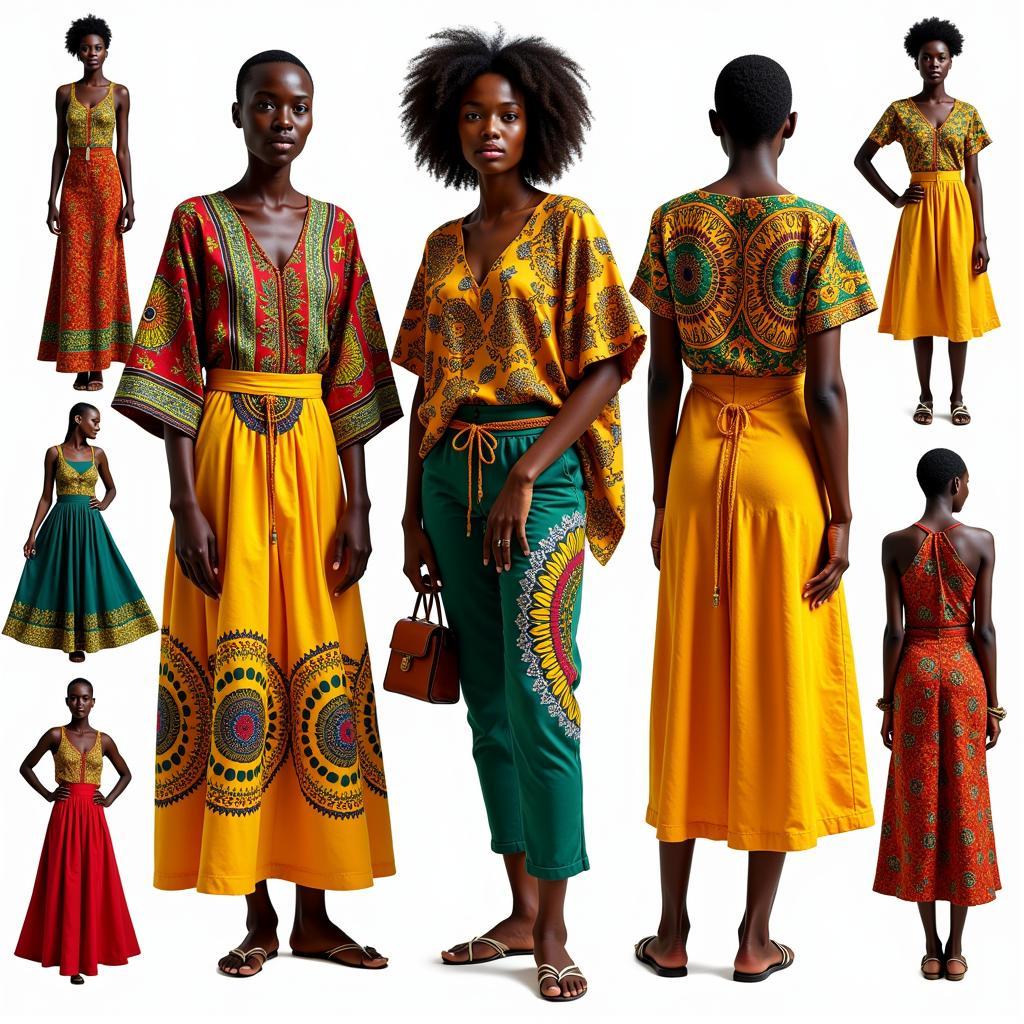African American Moving to South Africa: A Comprehensive Guide
African American Moving To South Africa is a growing trend, driven by a desire to connect with ancestral roots, explore new opportunities, and experience a different culture. This guide provides valuable insights for those considering this life-changing move.
 African American family arriving at Cape Town International Airport, excited to start their new life in South Africa.
African American family arriving at Cape Town International Airport, excited to start their new life in South Africa.
Understanding the Draw: Why South Africa?
Many African Americans feel a strong pull towards South Africa, seeking a deeper understanding of their African heritage. This connection goes beyond simple curiosity; it’s a journey of self-discovery and reconnection with a shared past. Beyond the cultural appeal, South Africa offers a diverse economy with opportunities in various sectors. The lower cost of living compared to the US can also be a significant draw. However, it’s crucial to research thoroughly and understand the complexities of relocating to a new country. What are the key considerations for African Americans moving to South Africa? Let’s delve deeper.
Navigating the Transition: Visas, Housing, and Employment
One of the first steps for African Americans moving to South Africa is securing the correct visa. There are various visa options available, from work permits to retirement visas, and understanding the specific requirements is essential. Finding suitable housing is another critical aspect. South Africa boasts diverse property options, from bustling city apartments to tranquil rural homes. Researching different neighborhoods and connecting with local real estate agents can significantly ease the process. Finally, securing employment is paramount. Networking and researching job opportunities in your field before the move can provide a head start.
Embracing the Culture: Language, Food, and Social Norms
Immersing yourself in the local culture is key to a smooth transition. While English is widely spoken, learning a local language like isiZulu or Xhosa can enhance your experience and show respect for the local community. South African cuisine is a vibrant mix of flavors, influenced by various cultures. Exploring local markets and trying traditional dishes like bobotie or bunny chow is a must. Understanding social norms and customs is equally important. Researching and observing local etiquette will help you navigate social interactions with greater ease and sensitivity. How does one adapt to cultural nuances in a new country? It takes time, patience, and a willingness to learn.
Connecting with the Community: Building a Support System
Building a strong support network is vital for any expat. Joining local community groups, attending cultural events, and connecting with other expats can help you create a sense of belonging and navigate the challenges of settling into a new environment. Sharing experiences with others who have made similar moves can be invaluable.
Remember, embracing the local community doesn’t mean abandoning your own cultural identity. It’s about finding a balance between integrating into your new surroundings while cherishing your roots. Thinking of exploring African cuisine further? You might find our article on african breakfast insightful. For those interested in the arts, our piece on african cinematic music is worth a read.
Addressing Potential Challenges: Safety, Healthcare, and Cultural Differences
While South Africa offers incredible opportunities, it’s essential to be aware of potential challenges. Safety can be a concern in certain areas, so researching safe neighborhoods and taking necessary precautions is crucial. Understanding the healthcare system and securing adequate health insurance is also essential. Finally, be prepared for cultural differences. What might be considered polite in one culture might not be in another. Patience, understanding, and open communication are key to navigating these differences successfully. For insights into African heritage, you may find our article on african countries where slaves came from informative.
“Moving to a new country requires adaptability and resilience,” says Dr. Nomusa Khumalo, a sociologist specializing in migration patterns. “Embrace the challenges as opportunities for growth and learning.” Another expert, Thabo Mbeki, a cultural consultant, adds, “Connecting with the local community can enrich your experience and help you build a sense of belonging.”
Conclusion
African American moving to South Africa embark on a unique journey of self-discovery and cultural exploration. By carefully planning, researching, and embracing the local culture, this transition can be an enriching and rewarding experience. Remember to connect with resources and support networks to navigate the challenges and make the most of this exciting new chapter. If you are curious about average height on the continent, have a look at our article about african height. If you are in Kuala Lumpur and seeking like-minded people, check out african clubs in kl.
FAQ
- What type of visa do I need to move to South Africa? (This depends on the purpose and duration of your stay. Consult the South African embassy or immigration website.)
- Is it expensive to live in South Africa? (The cost of living is generally lower than in the US, but it varies depending on the city and lifestyle.)
- Is it safe to live in South Africa? (Like any country, certain areas have safety concerns. Research and take precautions.)
- What is the healthcare system like in South Africa? (South Africa has both public and private healthcare systems. Health insurance is recommended.)
- What are some common cultural customs in South Africa? (Researching local etiquette and social norms is essential.)
- How can I find housing in South Africa? (Online property portals and local real estate agents can assist in your search.)
- How can I connect with other expats in South Africa? (Online forums, social media groups, and expat communities can help you build a support network.)
When you need assistance, please contact Phone Number: +255768904061, Email: kaka.mag@gmail.com Or visit us at: Mbarali DC Mawindi, Kangaga, Tanzania. We have a 24/7 customer service team.


